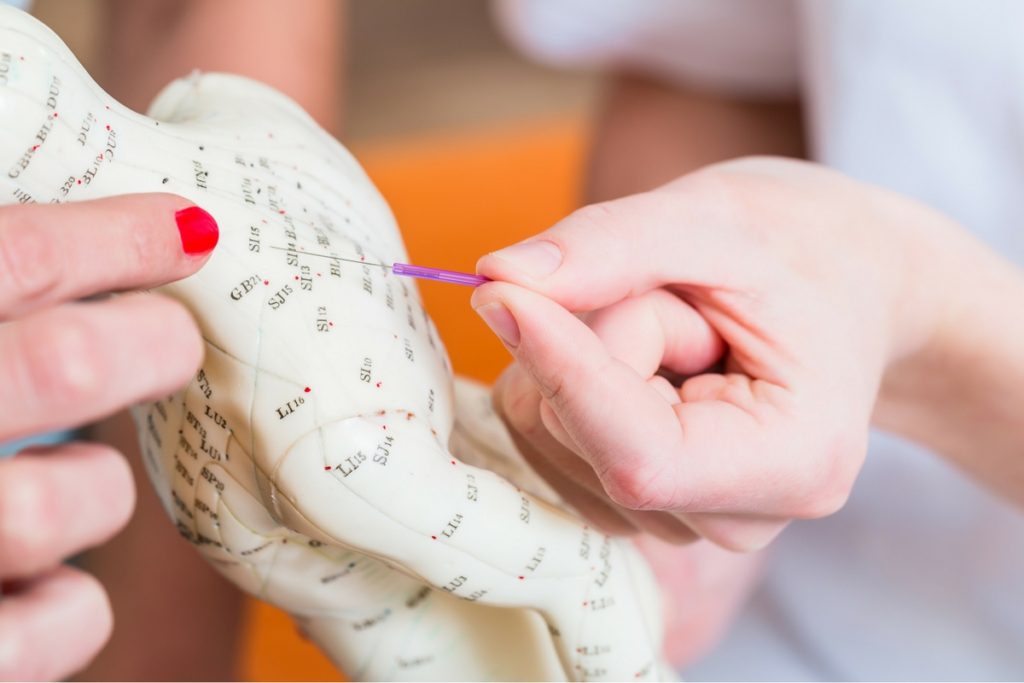
Despite having a history spanning more than 2,000 years, there are still so many questions and misconceptions about acupuncture. So, our resident Tampa acupuncturist, Dr. Jennifer Van Galder, is here to answer your questions…
1. How does acupuncture work?
Acupuncture is a treatment involving the insertion of a needle into specific acupuncture points to heal disharmonies in our body. These points make up the meridian system which are pathways that lie bilaterally on the body and transmit information to various other parts of the body to initiate a healing response also known as homeostasis.
Homeostasis is the body’s natural way of balancing the internal systems to maintain a stable environment (systems such as respiratory, cardiovascular, digestive, reproductive, etc..) Nearly all diseases are related to a degree of a disturbance in homeostasis.
2. How do we know that it works?
Acupuncture mimics the mechanism of homeostasis within the human body. This is one of the reasons acupuncture is very effective as a preventative medicine. It can restore balance/homeostasis to prevent further development of diseases.
3. What are the benefits?
When your acupuncturist stimulates your points, the physiological reactions affect brain activity. Some of these reactions include the release of pain-killing endorphins, an enhancement of the immune system and a change in blood pressure. Stimulation leads to the balancing of the sympathetic and parasympathetic nervous systems and the enhancing of the endocrine system. The treatment also stimulates the body to naturally heal itself.
4. How often do I need it?
Every patient is unique and has individual treatment needs. Generally, there are three phases to treatment:
- Relief Care: Where the initial complaint is addressed and usually involves more frequent treatments (can be as many as 2 to 4 times per week). This phase of care emphasizes treating the manifestations (branch) of the initial complaint.
- Corrective Care: Where the underlying conditions (root) that caused the initial complaint are addressed. This usually requires less frequent visits and generally addresses conditions to prevent relapse. Depending on the issue at hand, session can be anywhere between 1-2 times per week.
- Maintenance Care: Maintenance is relatively infrequent and designed to provide “tune-ups” to help maintain optimal health. Maintenance Care can be either one session every other week or even one treatment every month.
5. Does it hurt? I’m scared of needles.

Acupuncture needles are virtually painless. They are hair-like needles that you can bend and twist. Everyone’s body responds differently and you may feel a tiny prick of the initial insertion but it shouldn’t be painful. You may feel various sensations after the needle is fully inserted but these are positive sensations that tells your acupuncturist that the acupuncture point is activated.
When the needle is inserted, some people have reported feeling sore or slight pain while others felt nothing. Some have reported tingling sensations or a swelling where the needle was inserted. This will always depend on how your body reacts to the treatment.
The depth the needle is inserted varies from 0.2 to 3 inches and the depth depends on your problem, as well as, your size, age and constitution.
6. What can I expect?
Needles are the main tools of an acupuncturist but acupuncturists can also be well-versed in other therapies like acupressure (pressure with hands over points), Moxibustion (the heating of the skin), Cupping Therapy (the suction of the skin) and more.
7. Do I have to take my clothes off?
Most of the time you can remain clothed but for some of the acupuncture points, you may have to wear a gown or you may need to cover yourself under a sheet. It is always best to wear comfortable clothing during a session.
8. Do I have to eat before I go in?
There is no need to have a large meal before a session but try to have a snack before, so your body has enough energy to benefit from the treatment. Acupuncture on an empty stomach can leave you feeling lightheaded, dizzy or faint.
9. Can I do acupuncture if I am pregnant?
Yes, you can. Acupuncture has been found to relieve pregnancy symptoms such as morning sickness, it can lower back and pelvic pain, ease depression, headaches and even help with sleep problems.
10. Will certain conditions prevent me from doing acupuncture?
The World Health Organization has declared that acupuncture can treat several diseases and disorders. The list is long but some of these include hypertension, facial pain, cancer pain, earache, pain in dentistry, sciatica, stroke, tennis elbow, vascular dementia and more.
Have more questions for the acupuncturist?
What other questions do you have about acupuncture? Share your questions or concerns below!
Try acupuncture for yourself. Enter you contact information below to get $25 OFF your first appointment at Loving Life. Click here to book your appointment now.

 Benefits of Therapeutic Yoga You Probably Don’t Know
Benefits of Therapeutic Yoga You Probably Don’t Know